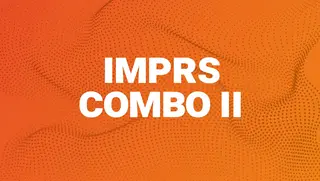IMPRS Combo II
The IMPRS Combo Numerics in Algebra & Analysis is an interdisciplinary workshop for PhD students and PostDocs in their early carrier. It aims to bring together all IMPRS students in two lecture series that will introduce them to modern numerical methods in algebra and analysis. The lecture will start on a introductory level so that no additional pre-knowledge is required.
Peter Bürgisser (TU Berlin): Numerical and geometric aspects in linear and nonlinear algebra
The performance of numerical algorithms, both regarding stability and complexity, can be understood in a unified way in terms of condition numbers. This requires to identify the appropriate geometric settings and to characterize condition in geometric ways. Moreover, a probabilistic analysis of numerical algorithms often can be reduced to a corresponding analysis of condition numbers, which leads to fascinating problems in geometric probability and integral geometry.
This approach is general: it not only applies to linear problems, but also to convex optimization and systems of polynomial equations. In the latter context, the geometric viewpoint is most powerful and led to a solution of Smale's 17th problem. But also the study of condition for linear optimization problems is very interesting. At its core is the problem to decide whether a given system of homogeneous linear inequalities has a nontrivial solution. This is related to Smale's 9th problem, which is still open.
More information on the subject can be found in my monograph "Condition" with Felipe Cucker.
Phillippe G. LeFloch (Sorbonne University/ CNRS): An introduction to structure-preserving methods for nonlinear hyperbolic waves
This lecture series will explore nonlinear phenomena and singularities in compressible fluid flows. I will begin with elementary material on nonlinear hyperbolic conservation laws, shock waves, entropy inequalities, and the finite volume methodology. The central focus will be on methods of mathematical analysis and scientific computation that are required to tackle problems involving small-scale dependent waves. Crucially, we aim to uncover some important hidden structures (entropy conditions, kinetic relations, DLM paths, static solutions, etc.) and, next, preserve these structures in numerical approximations. Applications include problems involving propagating interfaces, shock waves in viscous-capillary flows, interfaces in gas-liquid mixtures, etc.
I will introduce the audience to a selection of results and applications on this topic:
- kinetic relations for under-compressive shock waves (collaboration with B. Hayes)
- dissipation-preserving schemes (collaboration with M. Mohammadian)
- weak solutions based on DLM family of paths (collaboration with G. Dal Maso and F. Murat)
- spherically symmetric evolution on a Schwarzschild background (collaboration with Y. Bakthin)
- well-balanced methods preserving static solutions (collaboration with Pimentel and C. Pares)
- late-time asymptotic in presence of stiff relaxation (collaboration with C. Berthon and R. Turpault)
Registration is closed.


